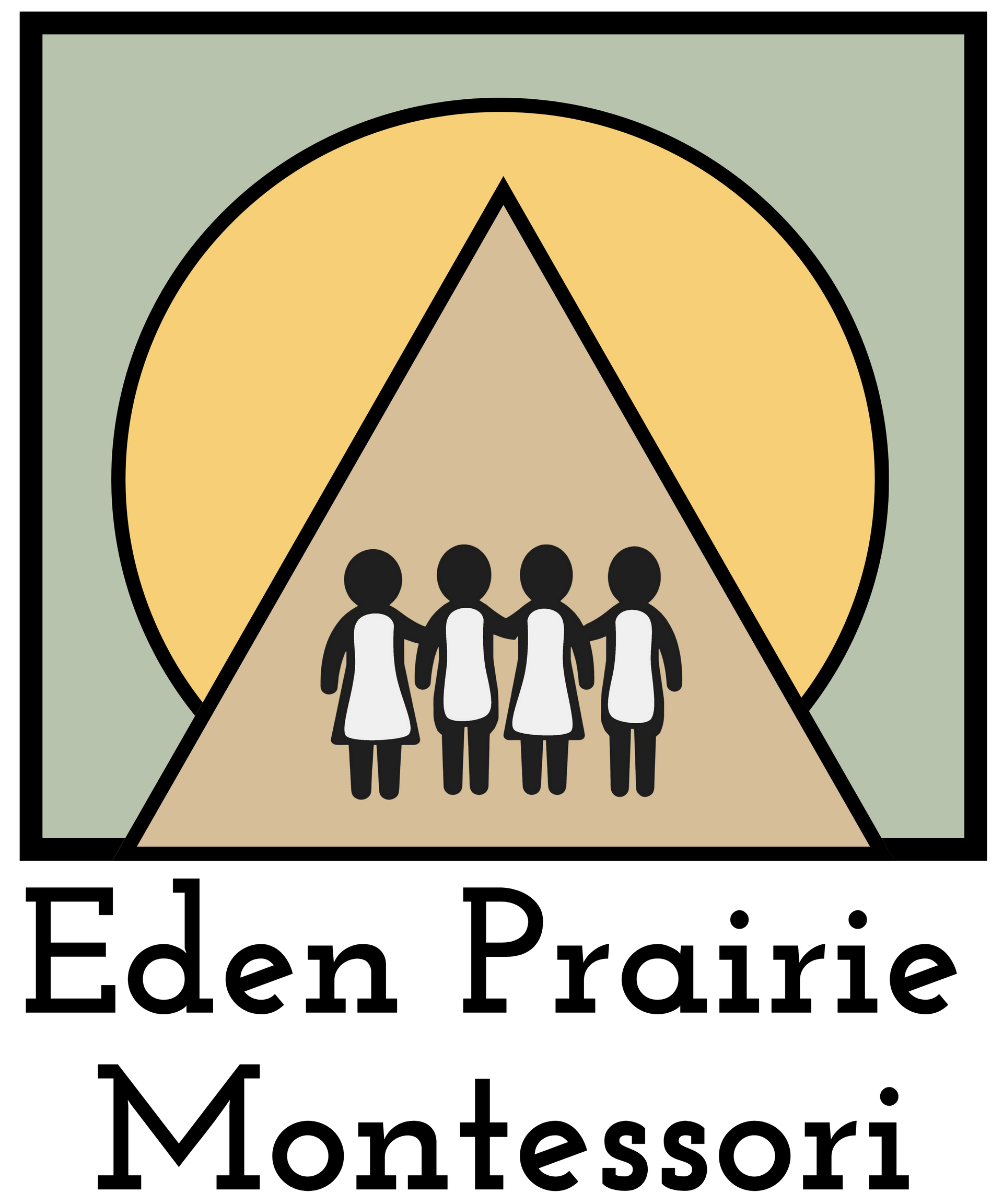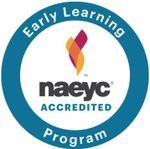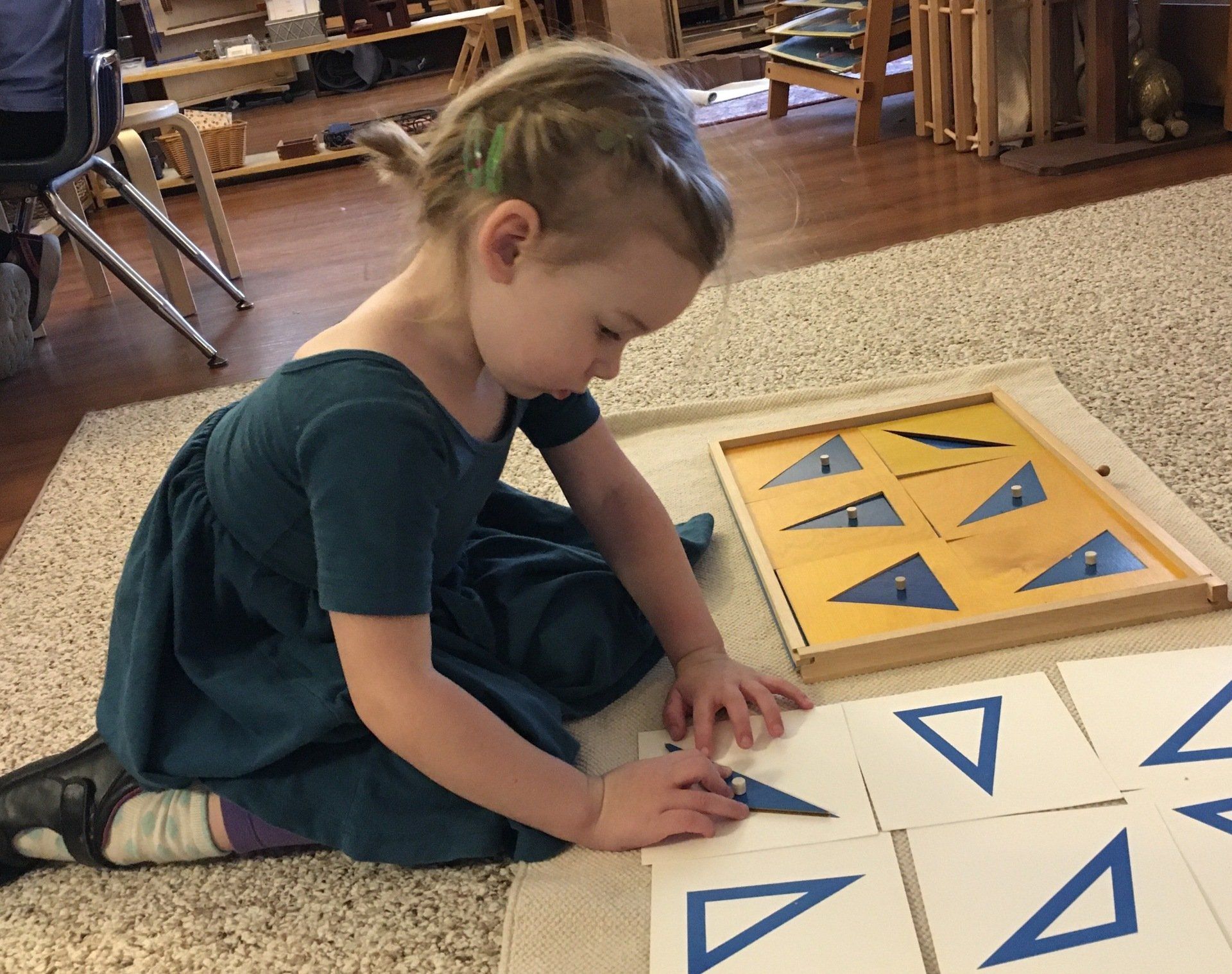
The Advantages of a Montessori Education
Eden Prairie Montessori provides a child-focused, self-paced learning environment for cognitive, social, emotional, and moral development. Traditional classrooms are instructor-centric and involve a general curriculum taught to the entire group at once. For children, this environment is impersonal and often stifles learning, producing inferior developmental and educational outcomes.
Small Group Learning: A Personalized Approach
At Eden Prairie Montessori, we believe that small group learning is essential for fostering a strong foundation in academics and social skills. Our teachers carefully plan and facilitate small group activities to meet the diverse needs of each child.
The Montessori method stands in direct contrast, promoting a child-focused, self-paced learning environment for well-rounded development. Inner learning, discipline, and conceptualization of learning materials are all central to this tried and true philosophy. Through our adherence to the Montessori method, we promote inner discipline, instruction, and feedback from learning materials. Children are then able to self-correct based on previous mistakes and reinforce their progress through repetition and an established feeling of competence.
The Benefits of Small Group Learning
- Individualized Attention: Teachers can provide personalized attention and support to each child.
- Social Interaction: Children learn to collaborate, share ideas, and resolve conflicts.
- Targeted Instruction: Teachers can tailor instruction to address specific learning needs.
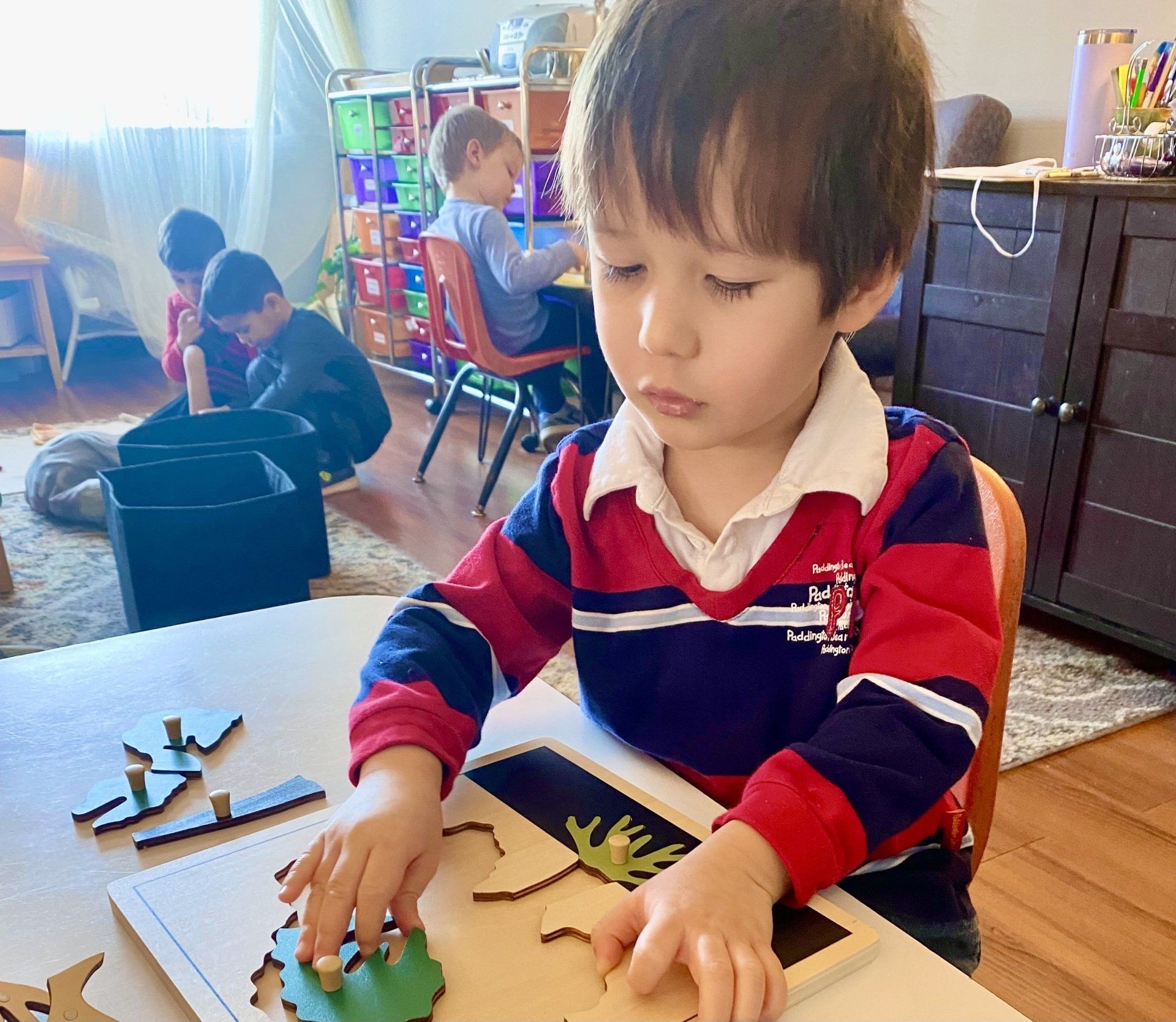
Where Peer Learning is Created and Promoted
Our instructors serve as facilitators for learning. Rather than leading classrooms, each instructor prepares age-appropriate Montessori materials and carefully monitors students and their progress.
Each child learns individually and with peers in a mixed age environment. Their peers reinforce positive habits, forming a supportive environment in which students benefit from each other and from working in small partnerships.

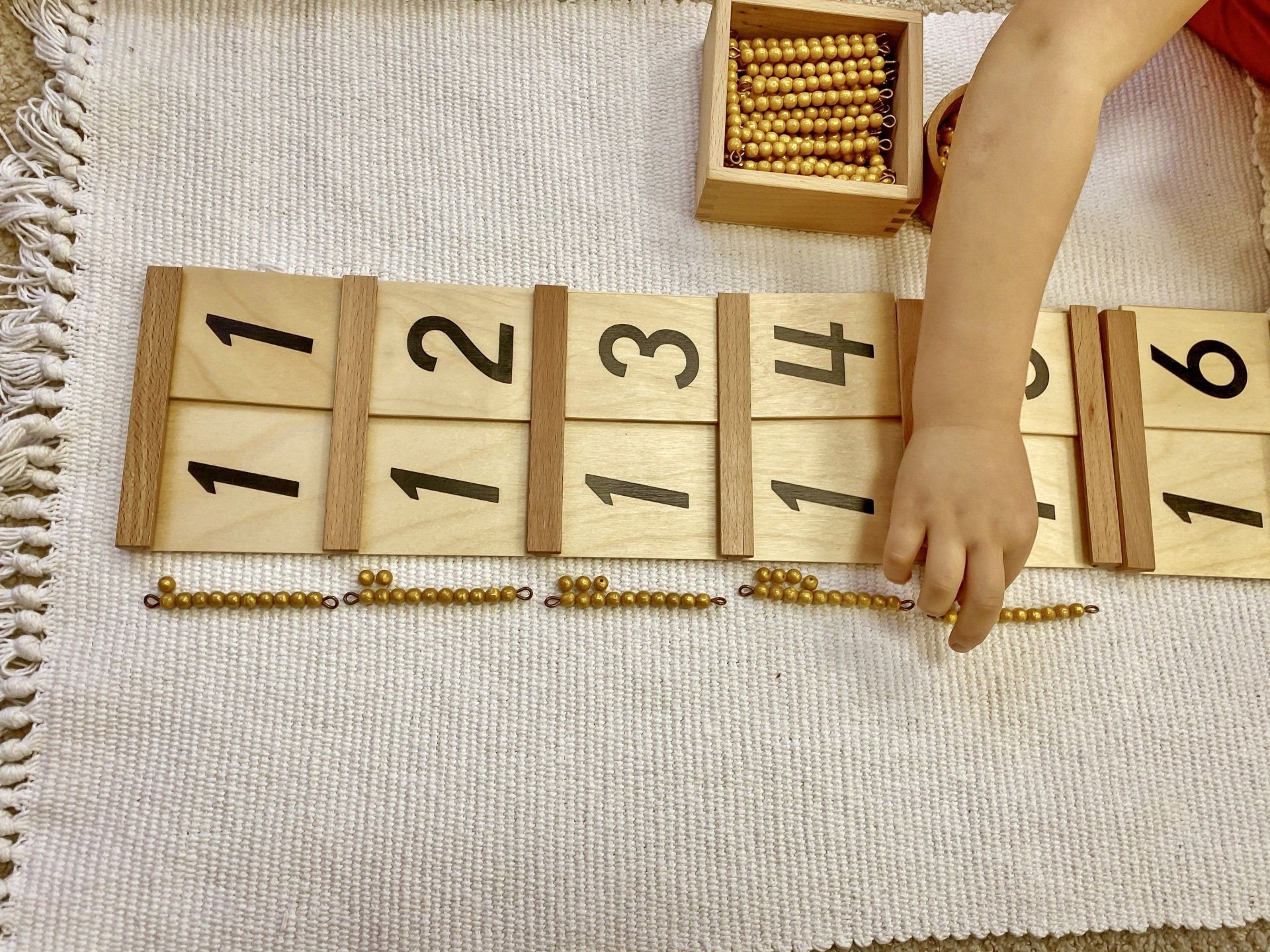
Creating Cognitive, Social, Emotional, and Moral Preparedness
Traditional schooling emphasizes social development whereas Montessori school promotes cognitive, social, emotional, and moral development.
Students are more well-rounded as a result, giving them the skills they need for First Grade and all future learning.
How Small Group Learning Works
- Flexible Grouping: Children are grouped based on their interests, abilities, and learning styles.
- Teacher-Led Activities: Teachers guide and facilitate learning through direct instruction and demonstrations.
- Child-Led Activities: Children work together on projects and activities, developing problem-solving and critical-thinking skills.
What Our Parents Say
“I can’t say enough wonderful things about this amazing school. The owner, teachers, assistant teachers…everyone is so loving, caring and eager to work with all their students. My kids have been here for over 2 years and our family will continue for the next 4 years until my last baby heads to Kindergarten."
Amy W.
Goals of a Montessori Program
Healthy Separation from Parents/Primary Caregiver
Montessori programs recognize the importance of developing secure attachment while fostering independence. Children learn to trust the classroom environment and teachers, allowing them to separate from parents with confidence. This gradual process respects each child's emotional needs while encouraging autonomous exploration. The emotional stability developed through this separation helps children build a positive self-concept and view education as an enriching experience rather than a source of anxiety.
Healthy Transition from Infant "Babyhood" to Childhood
Montessori education supports children's natural progression from infant dependency to childhood autonomy. This transition includes:
• Developing inner discipline and self-regulation
• Taking responsibility for personal actions
• Making choices and experiencing natural consequences
• Building confidence in their emerging capabilities
• Shifting from parallel play to collaborative activities
The prepared environment acknowledges this transition by providing materials that respect children's growing competencies while still honoring their developmental needs.
Socialization with Members of Their Community
The Montessori classroom creates a microcosm of society where children:
• Naturally interact with peers of different ages and backgrounds
• Form authentic friendships based on shared interests
• Learn conflict resolution through practical experience
• Develop empathy and perspective-taking abilities
• Practice grace and courtesy in daily interactions
This natural environment encourages meaningful social connections rather than forced socialization.
Independence in Everyday Living
Practical life exercises are central to Montessori education, helping children:
• Work autonomously without constant adult supervision
• Master self-care routines like hand washing and dressing
• Develop confidence through completing daily tasks independently
• Experience the satisfaction of self-sufficiency
• Build fine and gross motor coordination through purposeful movement
These everyday functions become habitual, freeing children's minds for higher-level thinking.
Respect for Others and the Environment
Montessori programs cultivate respect through:
• Freedom within boundaries (working at tables or on rugs)
• Care of materials (returning items to their designated places)
• Grace and courtesy lessons that foster harmonious interactions
• Modeling and practicing community expectations
• Understanding interdependence and mutual respect
Children learn that respect for the environment and others creates a peaceful community where everyone can thrive.
Concentration When Physical and Mental Energies Are Brought Together
Montessori observed that deep concentration is essential for meaningful development. Programs support this by:
• Providing uninterrupted work periods
• Offering engaging, purposeful activities
• Eliminating unnecessary interruptions
• Respecting each child's focus and work cycle
• Building progressively longer attention spans
This concentration forms the foundation for effective study habits and lifelong learning.
Normalization: Revealing the Child's True Nature
Normalization in Montessori refers to when a child's authentic character emerges through engagement in independent, purposeful work. This manifests as:
• Coordination: Refined movements and hand-eye coordination that prepare for writing and reading
• Order: An appreciation for logical sequences that builds mathematical thinking
• Independence: Self-directed activity and problem-solving
• Concentration: Sustained focus on meaningful tasks
• Spontaneous self-discipline: Internal motivation to follow rules and complete work cycles
Academic Growth Through Natural Development
While not the primary goal, academic learning naturally emerges when the above foundations are established:
• Children develop reading readiness through sensorial and language experiences
• Writing develops as an extension of fine motor control and language appreciation
• Mathematical concepts build upon concrete experiences with order and sequence
• A love of learning drives children to pursue knowledge independently
The Montessori approach recognizes that cognitive development is intertwined with social, emotional, and physical growth, creating a holistic educational experience that prepares children not just for school but for life.

